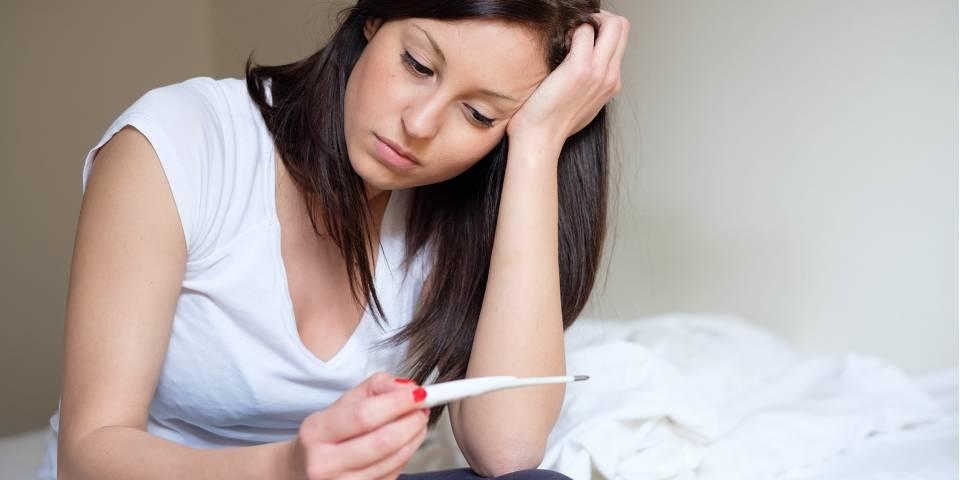Recent Blogs / News
Recent Blogs / News
Understanding Common Complications During Pregnancy
How to Reduce the risk of Infertility?
Reducing your risk of infertility means taking steps to decrease the likelihood that you will experience dif�culty conceiving or carrying a pregnancy to term Infertilitycanbe causedbya varietyoffactors,includinghormonal imbalances, structural abnormalities, genetic factors, and lifestyle factors such as smoking or poor nutrition By taking steps to reduce your risk of infertility, you may be abletoincreaseyourchancesofconceivingandcarryingahealthypregnancy
Some ways to reduce your risk of infertility include maintaining a healthy weight, avoiding smoking and excessive alcohol consumption, getting Proper sleep,managing stress,eatinga healthydiet,andgettingregular check-upswithDoctors These strategies can help regulate hormone levels, promote ovulation, and support overallreproductivehealth


Factors that can contribute to infertility and offer practical advice on how to reduceyourrisk
MaintainaHealthyWeight
AvoidSmokingandAlcohol
GetEnoughSleep

ReduceStress
EataHealthyDiet
ExerciseRegularly
ConsiderYourBirthControlMethod
GetRegularCheck-Ups
1.Maintaina HealthyWeight:
Maintaining a healthy weight is important for overall health and fertility Being overweightorunderweightcanaffecthormonelevelsandovulation,whichcan make it more dif�cult to conceive If you are trying to conceive, aim for a healthyweightbyeatingabalanceddietandexercisingregularly
How to Reduce the risk of Infertility?
Best age for pregnancy according to doctor; know likely complications if women conceive post 35


The in�uence ofInfertility on women’s mental health


What we can do to increase the chances of Normal Delivery?

Smoking and alcohol can harm fertility, both for men and women Smoking can reduce fertility by damaging eggs and sperm, while alcohol can disrupt hormone levels and reduce sperm production If you are trying to conceive, avoidsmokingandlimityouralcoholintake
3.Get EnoughSleep:
Getting enough sleep is essential for overall health and fertility Sleep plays a crucial role in regulating hormones, which can affect ovulation and sperm production Aim for 7-8 hours of sleep per night and try to establish a regular sleepscheduletohelp regulateyourbody’snaturalrhythms
4.ReduceStress:
Stress can harm fertility, both for men and women Chronic stress can disrupt hormonelevelsandaffectovulationandspermproduction Trytoreducestress in your life by practicing relaxation techniques, such as yoga or meditation, or byengaginginactivitiesthatyouenjoy
5.Eat a HealthyDiet:
A healthy diet is essential for fertility Eating a balanced diet that includes plenty of fruits, vegetables, whole grains, and lean proteins can help regulate hormonelevelsandpromoteovulation Avoidprocessedfoodsandaim toeata variety of nutrient-dense foods to ensure that you are getting all of the vitaminsandmineralsyourbodyneeds
6.ExerciseRegularly:
Regular exercise is important for overall health and fertility Moderate exercise can help regulate hormone levels and promote ovulation, while also reducing stress and improving overall health Aim for 30 minutes of moderate exercise mostdaysoftheweek,suchasbriskwalking,cycling,orswimming
7.ConsiderYourBirthControl Method:
Certain birth control methods, such as the Depo-Provera shot, can harm fertility If you are planning to conceive shortly, talk to your healthcare provider about switching to a birth control method that has a shorter duration or is easilyreversible
8.Get RegularCheck-Ups:
Regular check-ups with your healthcare provider can help identify any underlyingmedicalissuesthatmaybeaffectingfertility Ifyouarestrugglingto conceive,yourhealthcareprovidermayrecommendfertilitytestingorreferyou toaspecialist
IfYouarelookingforinfertilitytreatment,Dr AsmitaDongareisoneofthe best gynecologists in Pune in which she has 15 years of experience in handling complex cases in Obstetrics and Gynecology She provides the highest quality servicestothemotherandchild



